“With this body of work I sought to underscore the idea of how divinity and community can exist in one place”
Carlos Idun-Tawiah (born 1997) is a Ghanaian photographer and filmmaker who centres African resurgence and preservation of the dynamic lives of black people in his work. Seeking to capture the ever-changing landscapes of black life, Idun-Tawiah’s vernacular photography is inspired by photographic archives and characterised by its focus on the subjects of community, love and hope. Below, we share images from a new body of work, Sunday Special, in which Idun-Tawiah seeks to portray childhood memories inspired by a close study of his family album and recollections of growing up in a Christian and Ghanaian home. This rich series plays with visual nostalgia, juxtaposition, colour and gesture to fully extract the temperament of Sundays in Accra, Ghana.
Idun-Tawiah came onto Autograph’s radar in 2022 with a remarkable contribution to our public call for photographs on the theme Becoming Monumental. Autograph’s Director, Mark Sealy, says: "Idun-Tawiah's work intersects with dialogues within global photography and weaves new and pleasurable visual patterns into existence. Here, he takes us to church and opens the door to conversations, using the camera as a tool to build community." More recently, Autograph’s curator Bindi Vora also selected some of the artist's work to feature in her Guest Room with Der Grief. Works from Idun-Tawiah’s series Boys Will Always Be Boys are currently making their debut at Belfast Photo Festival and Sunday Special will feature at Les Recontres d’Arles festival from 3 July – 24 September 2023.
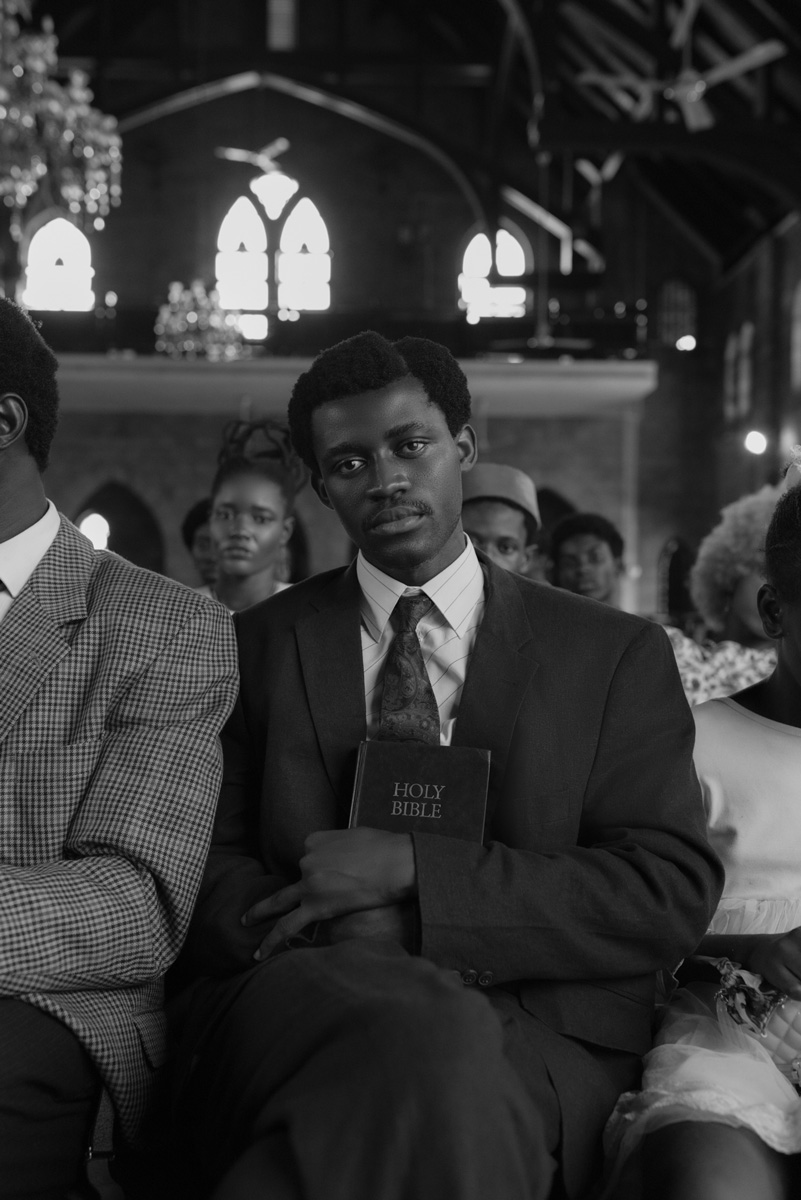
"I made this photograph as a requiem for my late dad. My father was my first lead-in to the Christian faith. I saw him read the Bible every morning, and whenever he gave me some advice about life he referenced a scripture or two. I couldn’t make a memoir of him without his favourite book; a book that welded his opinions and values over the years."
"Firmly placing the Bible on the chest of my subject in this photograph is intended to evince how central our beliefs are to our actions, and how our convictions eventually become second nature."
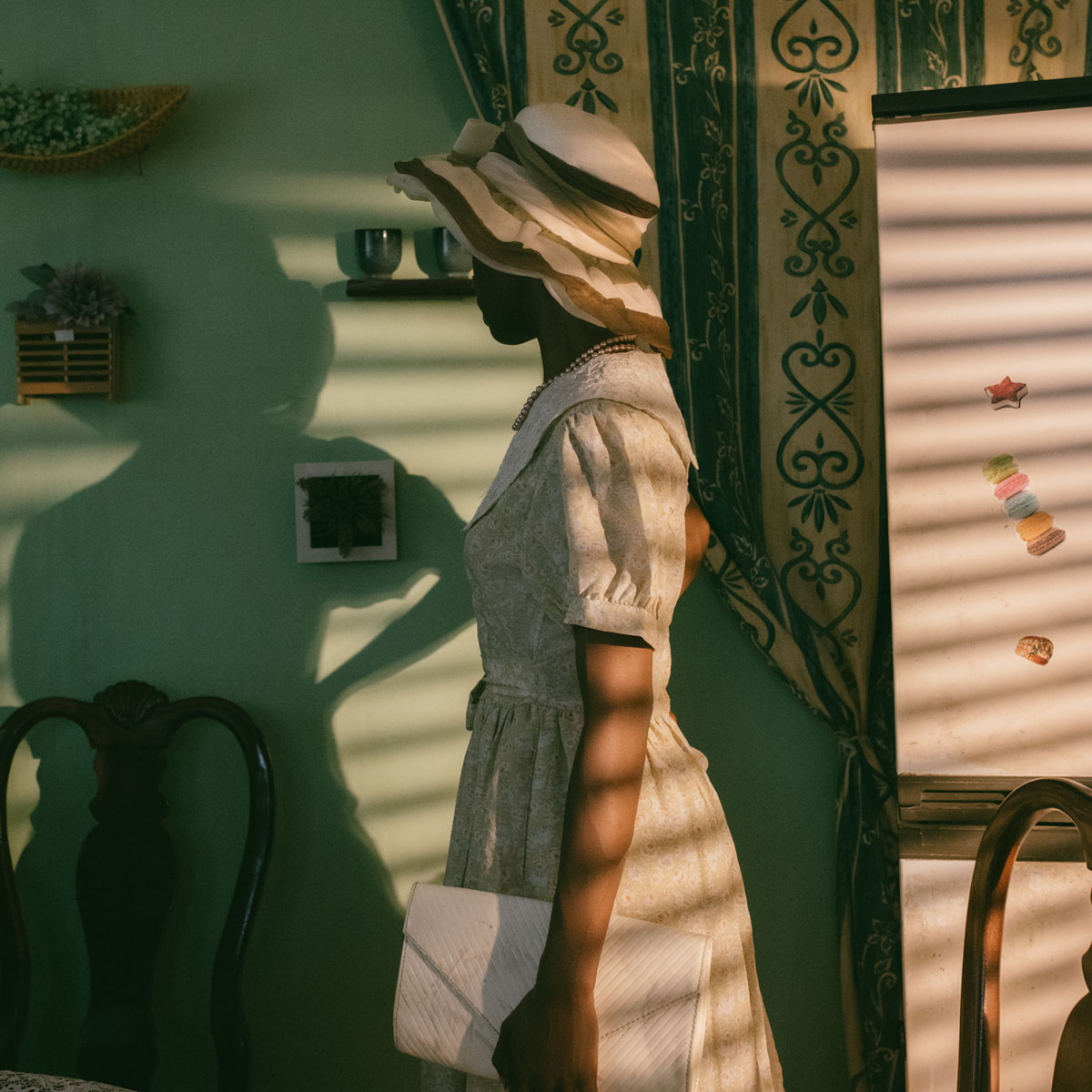
"'Oh Grace' is my mom's nickname for my grandma. The hat and dress in the image are my grandmother’s, and I photographed my subject gazing at the harsh shadow on the wall as a memoir to her youth. My grandma is 85 now and yet still ever young, ever reflective and ever graceful. Age does nothing on a lucky few, and she is definitely one."
"The photograph is set to resemble my grandmother’s kitchen, to highlight the very things that have given her the most joy in life; seeing family and friends merry over her meals. Eating in that green walled room bonded many and resolved more quarrels than I can remember."
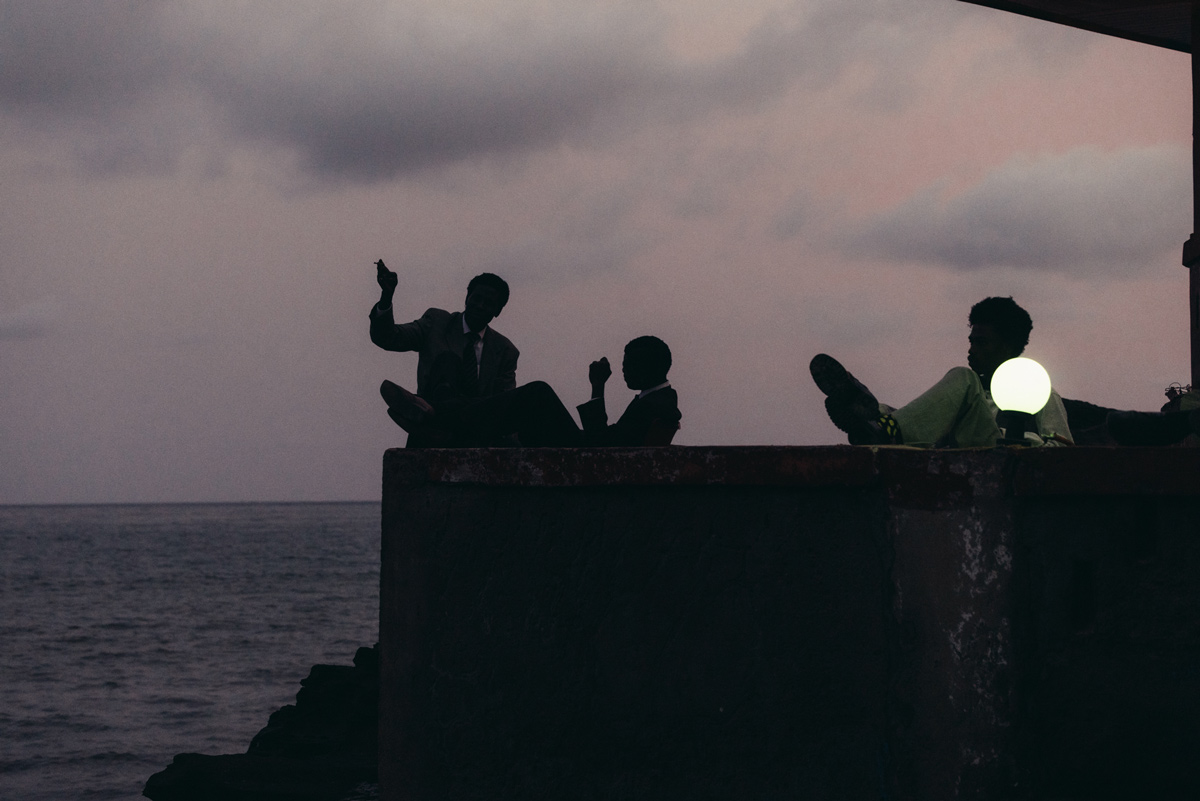
"On Sunday evenings my uncles would take me and my siblings to this open air bar called Lagoon Side in Sekondi, Ghana, where we'd drink and eat roasted fish. Taking this photograph felt like stepping into a time machine. The purple skies, the silhouettes, the grey clouds, the sound of the ocean, the smell of fish. Everything reminded me of my first experience of night life. The first place to look for me if I was not home on a Sunday evening was with the old folks at Lagoon Side."
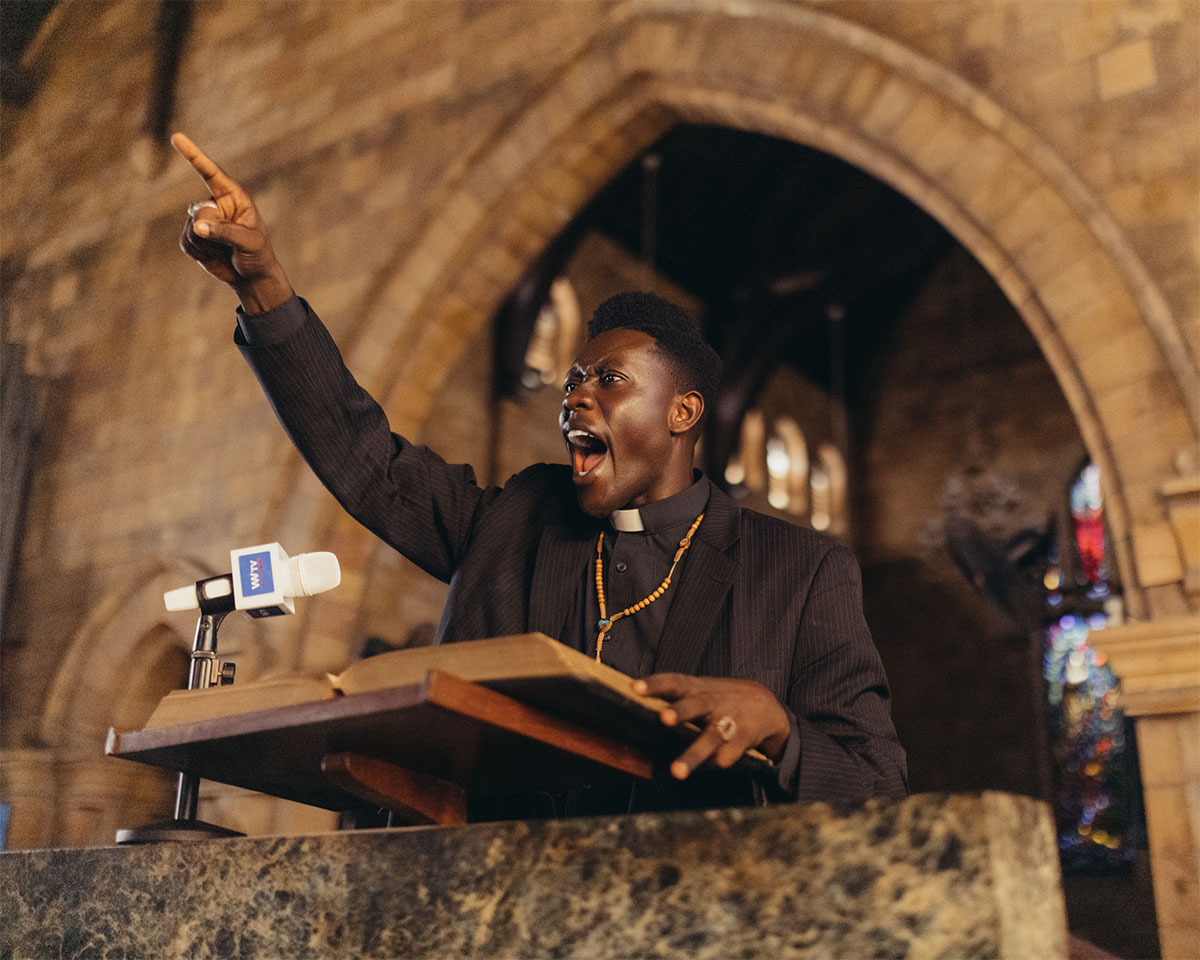
"I never really understood the zeal the preacher always expressed when he mounted the pulpit to preach the gospel, but it sure did give me goosebumps. Every time. I might not have fully understood his passion but I understood the message."
"The voice of the preacher echoing throughout the corridors was loud but full of empathy. To me that best expressed the sound of GOD. Full of conviction and power yet full of mercy."
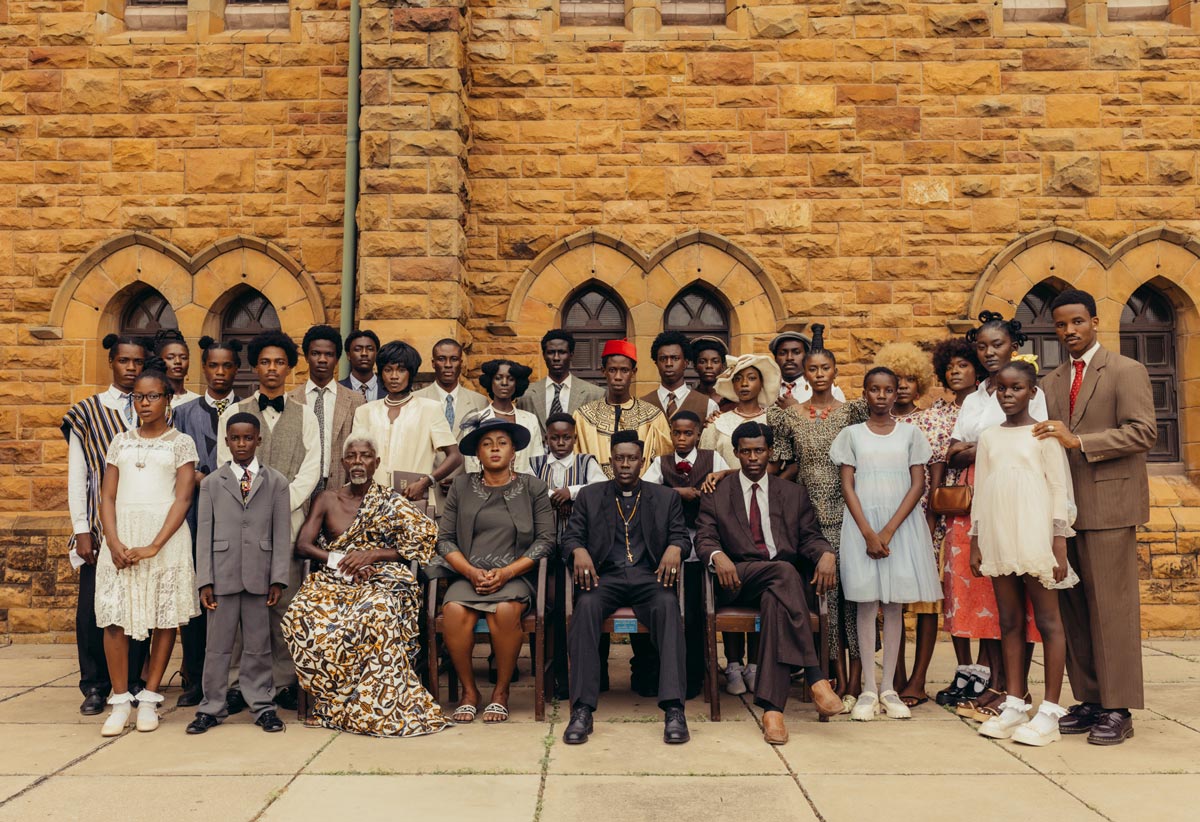
"During my research on black vernacular portraiture and a close study of my family album I noticed something interesting: I barely saw any smiles in group portraits. Everyone looked so robust and poised, as though they were almost uninterested. On the other hand I also felt a sense of opulence. A sense of calmness and collectedness."
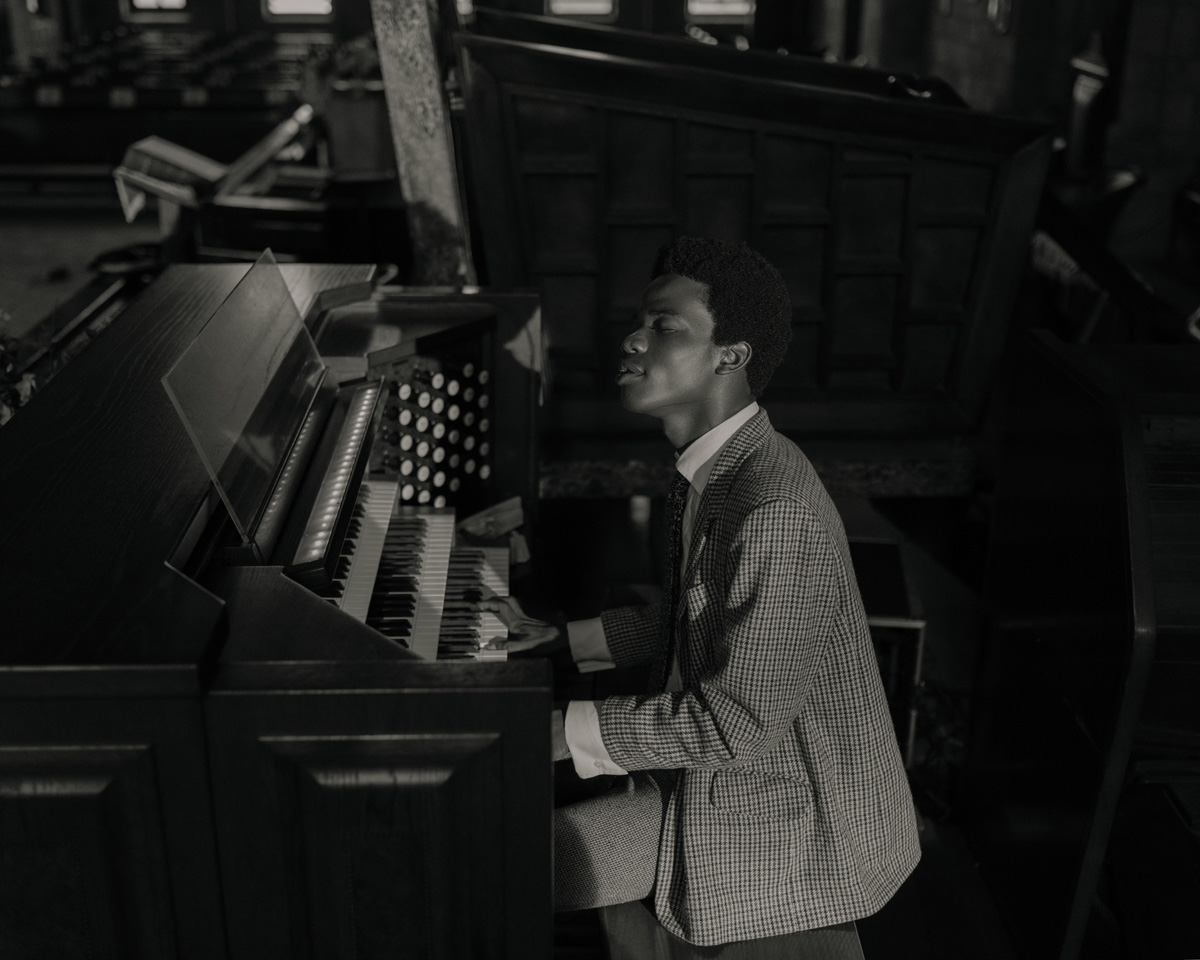
"Mr Bilson was my grandad, a musical genius that spent more than half of his 95 years alive playing the piano. Old and ever ready to lead the choir with his fingers on the piano and feet on the pedal. At 90, frail and shaky but still passionate, he insisted on teaching me an instrument. I never got to photograph him doing what he loved to do best but at least I feel better knowing I could make this memoir of his passion."
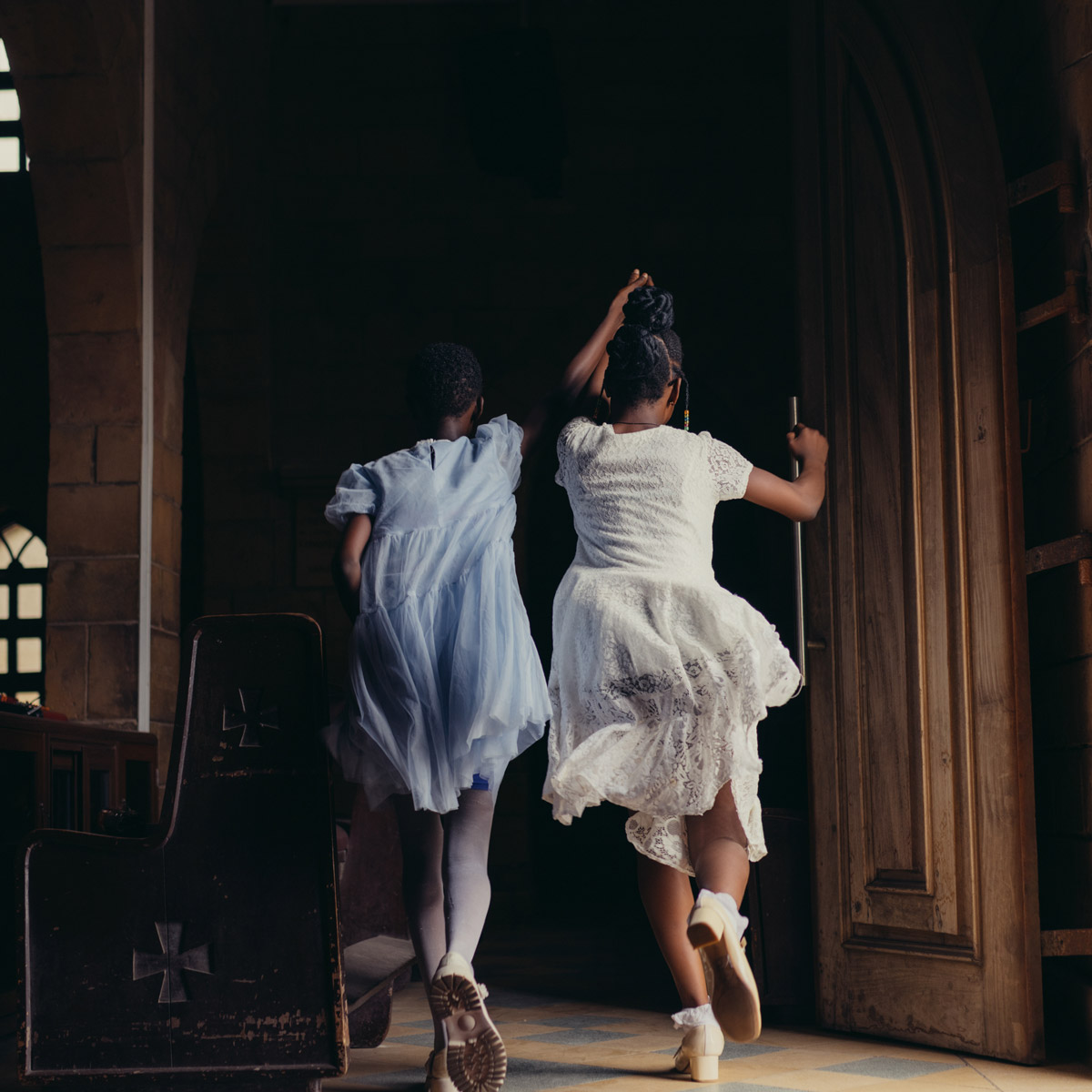
"Back in the day we had Sunday School - Bible classes just for the little kids. We spent half of the time memorising Bible verses and studying the characters in the book, and the other half running around with our friends, with no cares in the world. This however taught us the power of community and love."
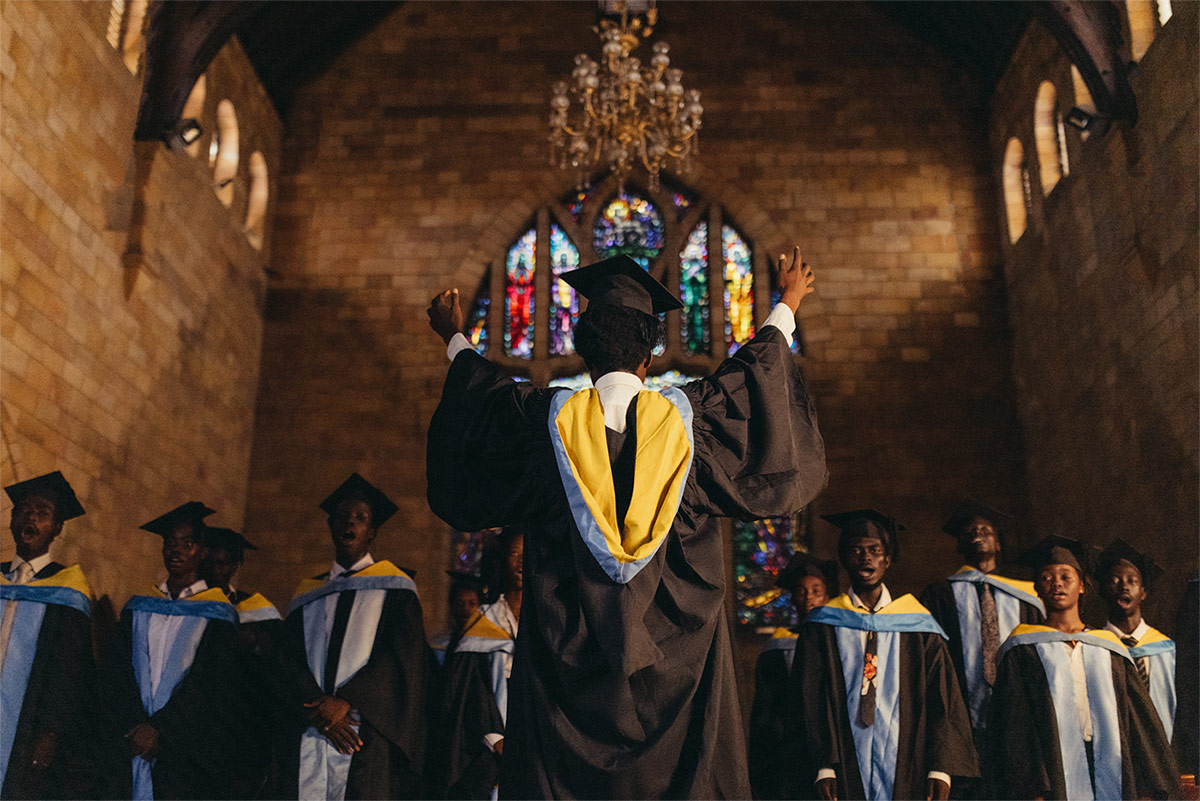
"I cannot talk about my church experience growing up without zeroing in on the choir. These songs have echoed through time and still live in my head. Beautiful music sang with so much tenacity and strength. The hymns from the choir spoke directly to every heart in the room."
"Every hymn had its own effect. I cried, I laughed, I felt brave and on some days I felt sober listening to music from the choir piercing through the hallway. Music is a big part of me now. It keeps my mind clear and sane. This photo is an homage to where it all began."
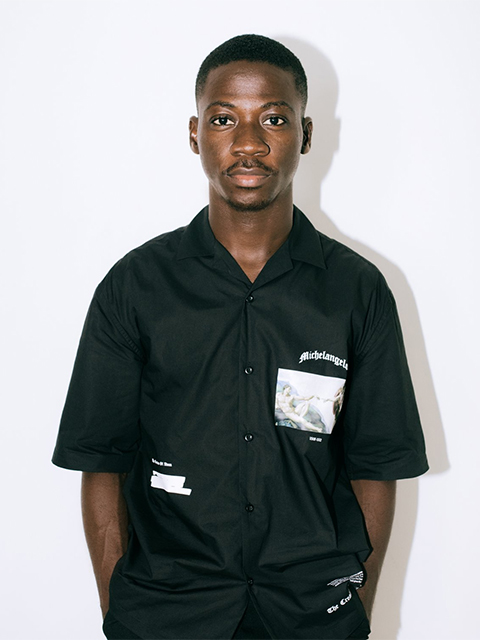
is a Ghanaian photographer and filmmaker based in Accra, Ghana. Inspired by Africa’s rich photographic archives, Carlos seeks to remark and reimagine the ever-changing landscapes of Black life. His photographs are mostly characterised with subject matters around the vernacular, community, love and hope.
Through his fictionalised photographic stories, Idun-Tawiah is committed to carefully accenting Black beauty and depth, by telling the African story with as much clarity as grace.
His work has featured in Vogue, CNN, The Guardian, InStyle, Financial Times, It’s Nice That, Document Journal, Notion, Frankfurter Allgemeine Zeitung, Pitchfork, GQ South Africa, Dazed, Architectural Digest Italia, Le Monde France, WWD, ESSENCE, Marie Claire France, Travel + Leisure, Vanity Fair Italy, Harper’s Bazaar and Adobe’s Behance. To find out more, visit the artist's website.
Banner image: Carlos Idun-Tawiah, One Thousand Hallelujahs, One Thousand More [detail], from the series Sunday Special, Accra, Ghana, 2022. © and courtesy of the artist.
All images are © and courtesy of Carlos Idun-Tawiah @carlosidun.
Photo Assistant: Michael Agyare @michaelagyare_
Stylist: Holali Kinni Felix @playboy_holali
Assistant Stylist: Kofi Eyram @keliiymorgan
Gaffer: Ibrah Yakubu @iamibrah2
Production: Rood Lab @roodlab
Production Management: AS Company @asmarketingco
Set Design: Coffee Session Art @coffee_session.art
Casting: The Good Models @thegoodmodels_
Grooming: Edna Hair
Key Talents: Kezia Agyeman-Boafo @kezia_agyemanboafo, Amisum Atebiya @amisum_atebiya, Joel Gyamera @joelgyamera_, Temilola Ajao @temilolaajao, Jacob Mensah @_realthymar.
Autograph is a space to see things differently. Since 1988, we have championed photography that explores issues of race, identity, representation, human rights and social justice, sharing how photographs reflect lived experiences and shape our understanding of ourselves and others.